
THE DENIM DEEP DIVE
We know denim is the cornerstone of any modern wardrobe. From throwing together a casual outfit for running errands, to curating the perfect jeans, blazer + heels evening look, it’s an enduringly reliable option. But there’s so much more to know about how your favourite pair of jeans or trusty jacket were made, and how to care for them to ensure your denim pieces last as long as possible.
+

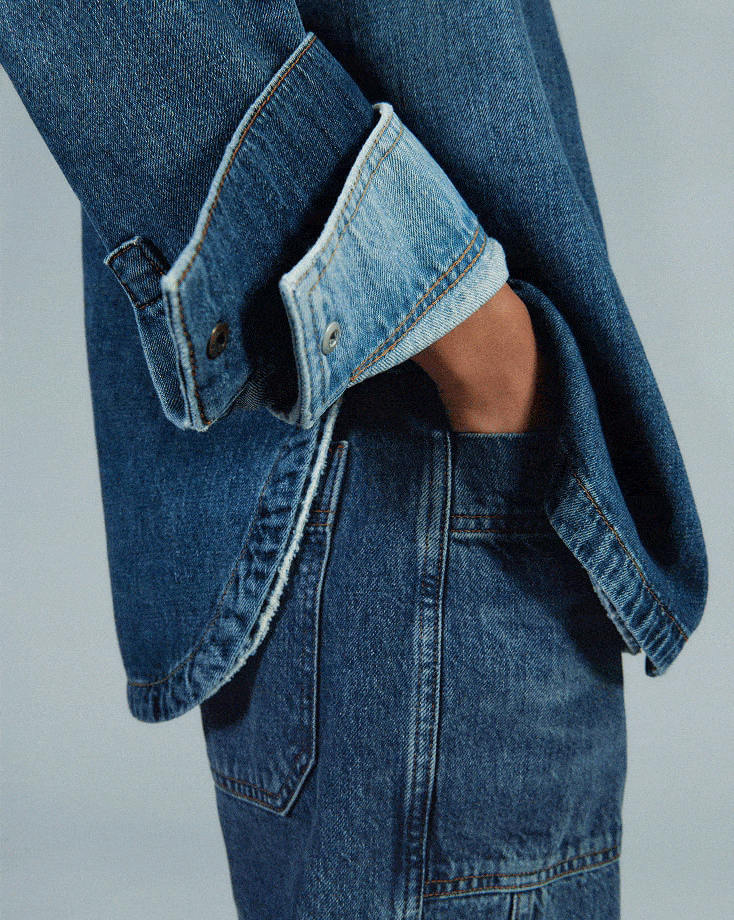
THE ROOT OF ALL DENIM
Despite its entrenchment in USA culture as a symbol of all-American style, the word ‘denim’ comes from the French phrase serge de Nimes, in reference to a type of fabric produced in Nimes, France. This fabric was hugely popular due to its durable nature, and its use quickly spread into neighbouring Italy, where the city of Genoa soon became the world’s biggest product of ‘serge de Nimes’ fabric.

As denim became a popular workwear choice in the States, primarily due to The California Gold Rush in the mid-1800s, the name ‘jeans’ was adopted after the French name for Genoa, ‘Gênes’. This was also the time that denim got its original indigo colouring as a more practical alternative to the undyed ecru colour. Indigo was a readily available, naturally occurring dye source, so American producers chose it out of necessity.

HOW COTTON BECOMES DENIM
Most of our denim is primarily made from cotton, with a few additions of elastane for stretch or Lyocell for extra softness. But cotton as you may picture it - crisp shirts and breezy summer dresses - is worlds away from the distinct texture, look and feel of classic denim.
Grown in areas with a lot of sunshine, cotton plants have tall stems with heads of fluffy fibres to protect the seeds. It’s these fluffy heads that are harvested, cleaned and combed into long fibres, before they’re spun into yarn using an industrial machine.
What sets cotton fabric apart from denim is the fibre density. Classic cotton fabrics like poplin, muslin or voile use thinner fibres for a higher thread count per square inch, giving these fabrics a lighter feel and a more fluid quality. In contrast, the cotton fibre used to make denim is much more dense, resulting in a lower thread count and the weightier, stiffer feel.
WASH SCIENCE
When talking about denim, ‘wash’ isn’t a reference to how to clean your denim, (we’ll talk about that later) instead, it’s the industry term for the colour. It’s called a wash because the denim isn’t simply dyed, it undergoes different types of washing methods from solvents to natural ingredients to achieve the final look and feel. It’s worth learning about the different techniques and how this can affect the final denim product, as different washes can involve different levels of upkeep and sizing considerations.

Undyed Denim
Undyed denim, often labelled ‘Ecru’, refers to the denim-weave cotton in its natural state, which is a soft, off-white colour.
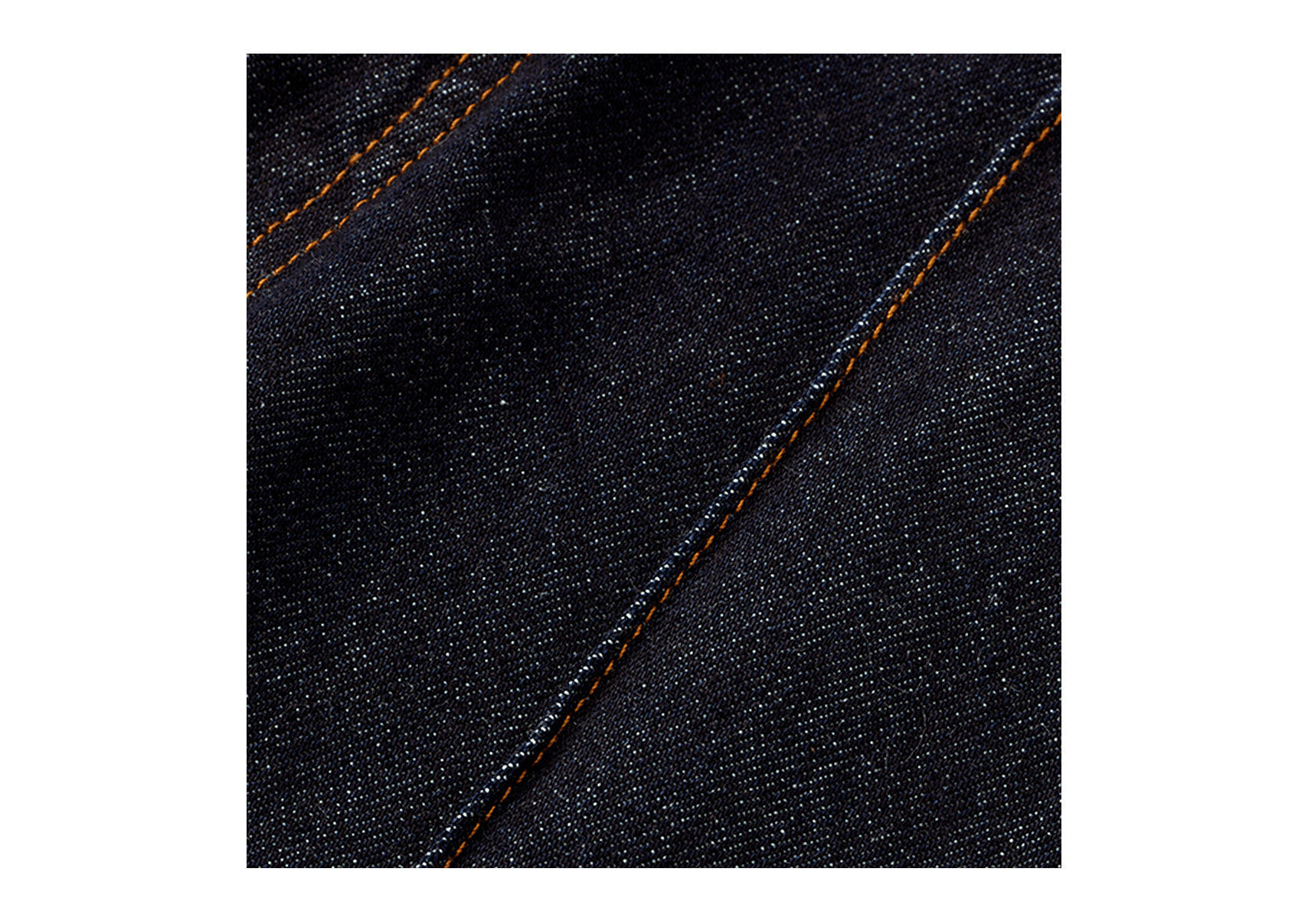
Raw Denim
As the name suggests, raw denim is unwashed and untreated. It has an initial stiff appearance and feel but transforms over time with each wear. Raw denim is dyed indigo and not washed in any way, so considerations should be taken before the first machine wash.
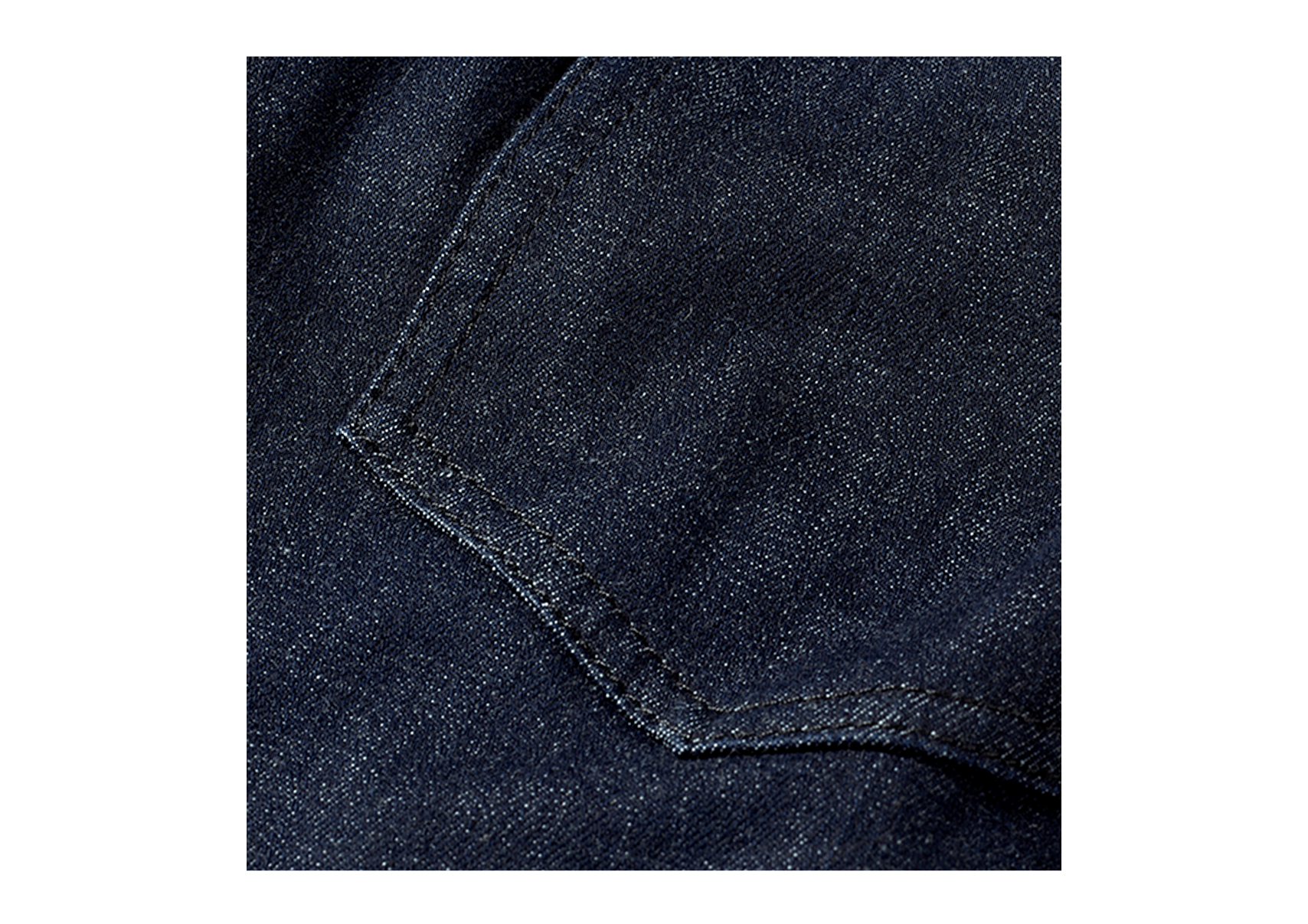
Rinse Wash
The more practical relative of raw denim, rinse wash denim has the same deep indigo colour as raw denim, but it’s been rinsed in water to remove residual dye and softened for a more comfortable fit.
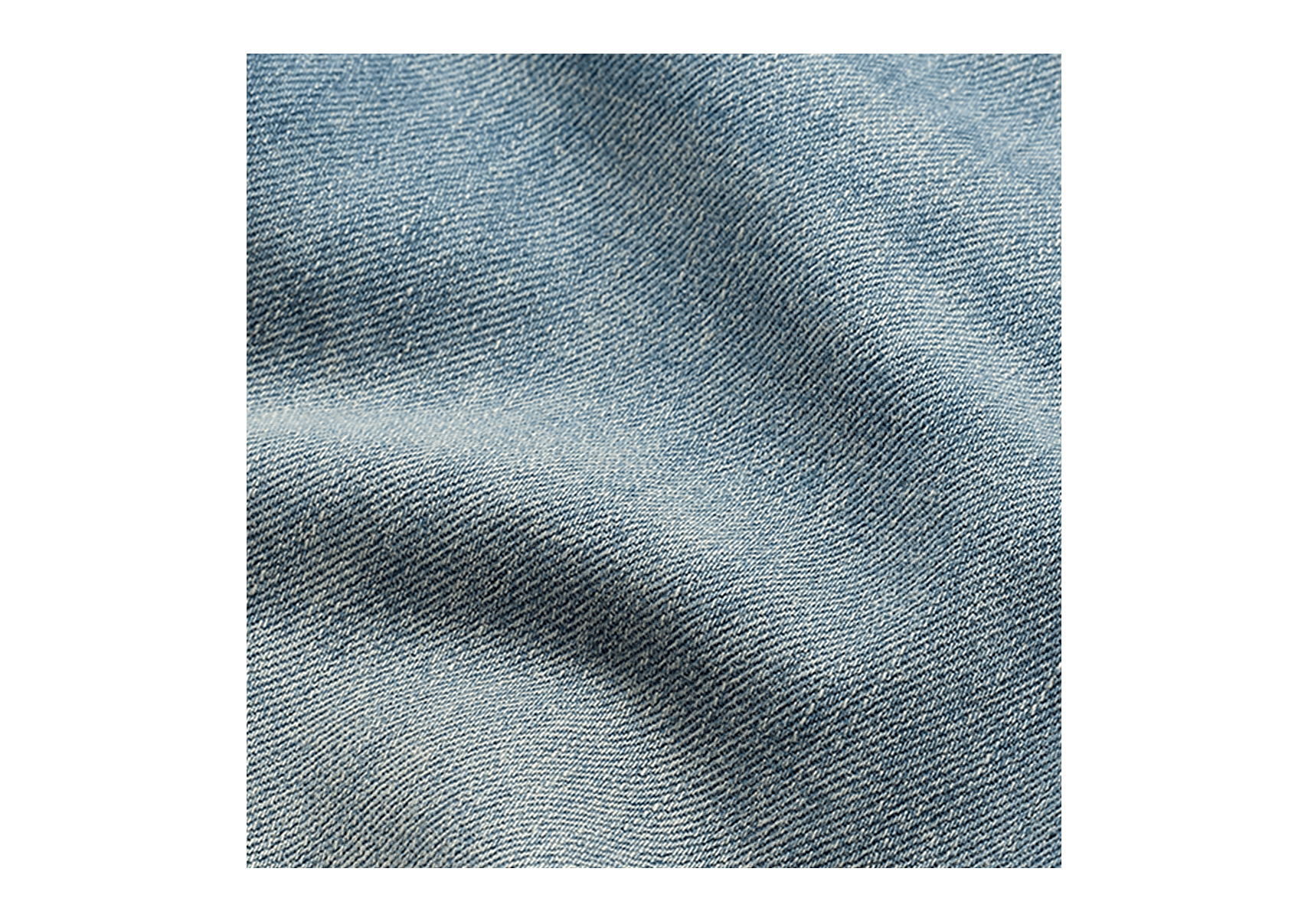
Stone Wash
Stone washing is a conventional finishing option that involves the use of pumice stones to quickly achieve the coveted lived-in, authentic look of aged denim. Different intensities of stone washing are achieved by using stones of different sizes, and can vary from very light blue, to mid and darker tones. We work with denim suppliers that also use lower-impact finishing technology such as lasers to replicate the stone-washed look.
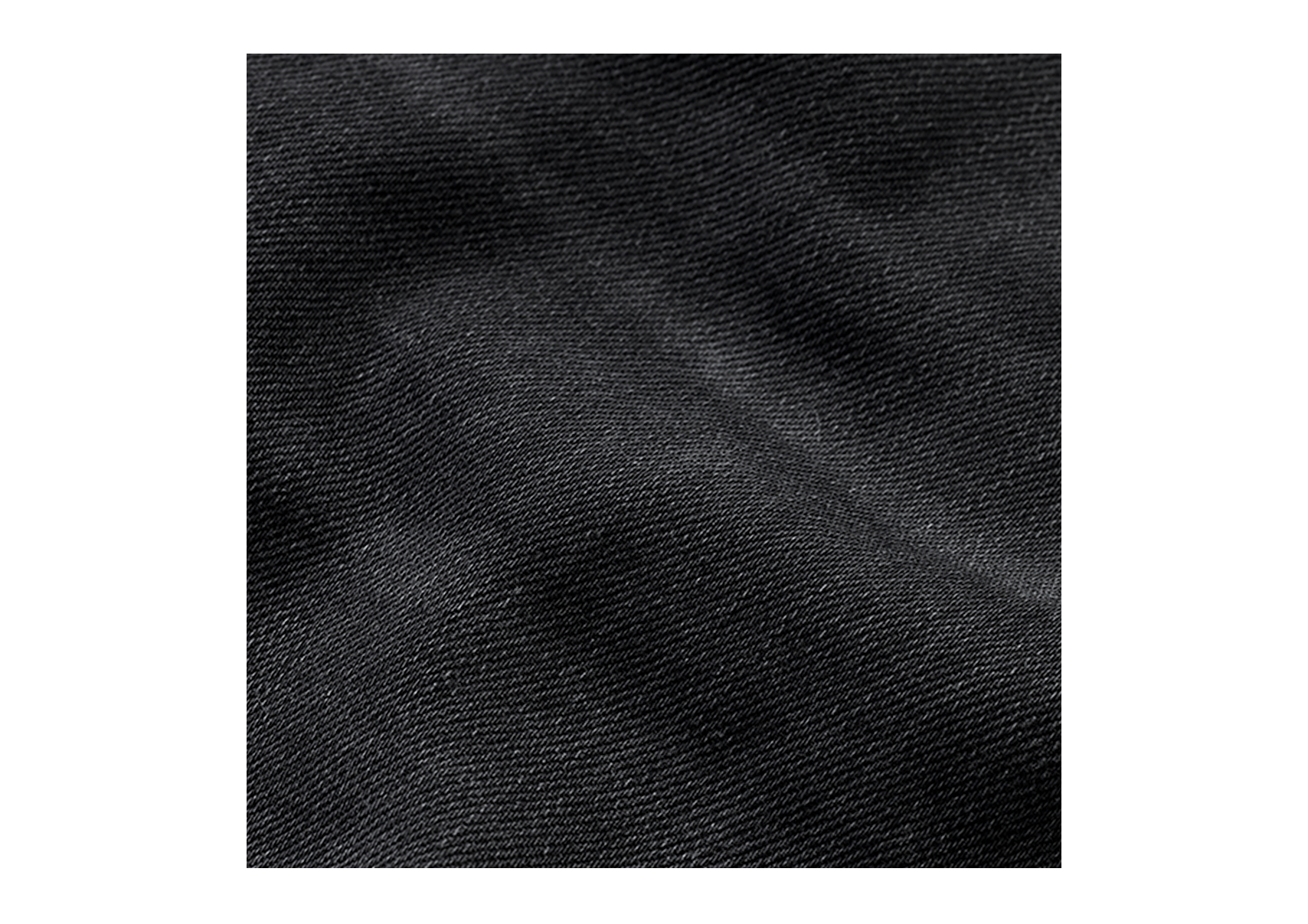
Dark Wash
This wash covers the color spectrum from mid gray to almost black. Dark dyes are used to create the color which penetrates deeply into the fabric. However, due to the heavily-dyed nature of this wash, it’s the hardest color to maintain and the intense washing treatment can also cause the fabric to shrink a little, which might account for why you often have to size up in darker wash jeans.
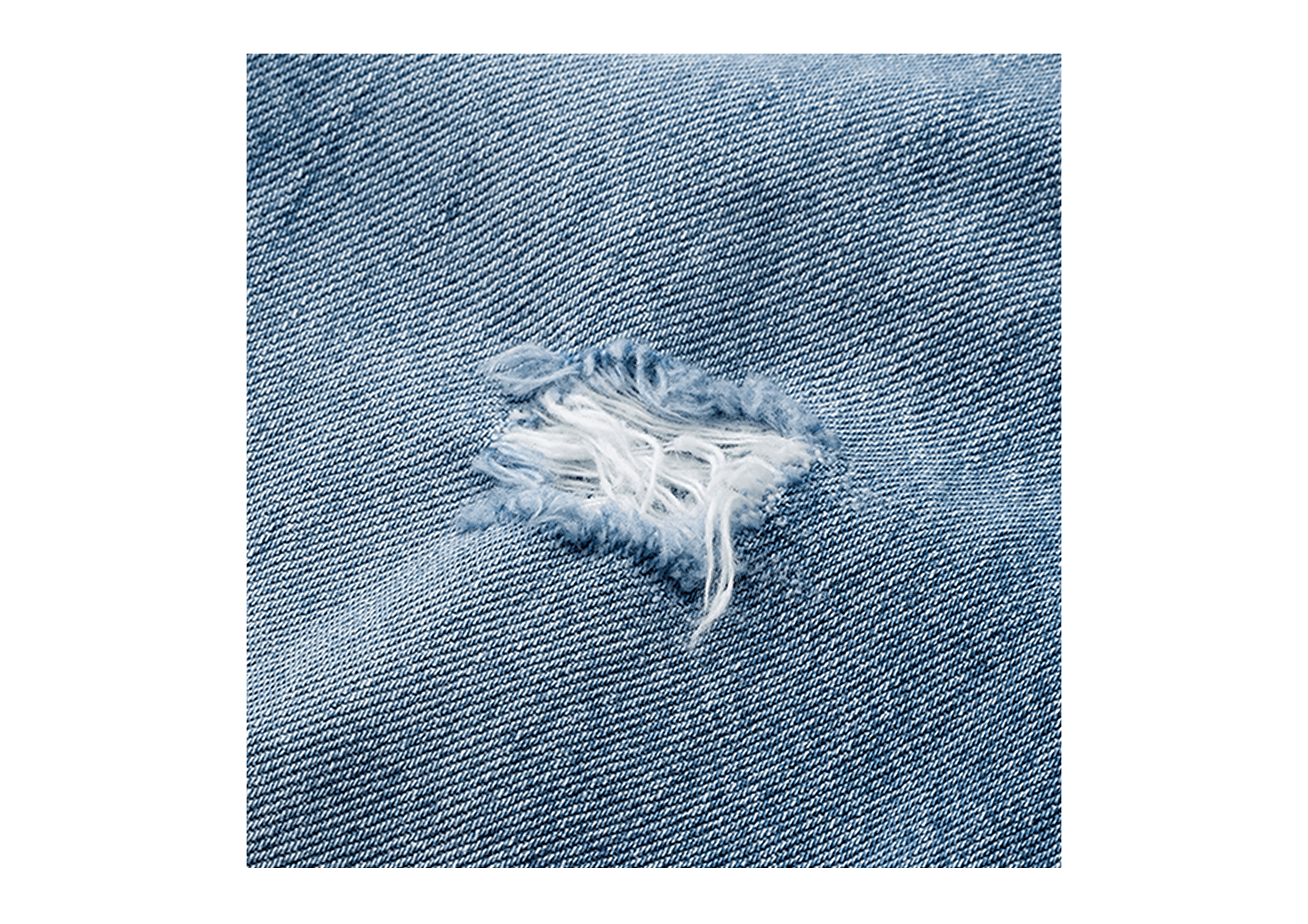
Hand-Finished Denim
From statement torn knees to subtle fraying along pocket seams or hem, hand-finishing is a popular choice to achieve the perfectly undone look. It involves a variety of hand techniques like sanding or pumicing in order to artificially create rips, tears and abrasions associated with long-term wear.
Shop Denim
HOW TO TAKE CARE OF YOUR DENIM
Good denim should be an investment, and learning how to care for it is key when it comes to ensuring its longevity. There’s a few tips + tips which can mean the difference between a seasonal and lifelong investment.

WASHING + DRYING
Washing less is best. Over washing your jeans can affect the pair’s natural characteristics that develop over time or it can cause premature fading if it’s a darker wash. Stains can be spot cleaned between washes with mild soapy water and a cloth.
Pre-wash rituals. Turning your jeans inside out before washing can help prevent fading as it lessens the direct contact of the outside with detergents. Securing zips and buttons helps maintain the shape and prevents snagging in the machine.
Mild detergent. This one is especially important for dark wash or black denim, which is more likely to fade if a strong (or too much) detergent is used.
No fabric softeners. We know it can be tempting to use a softener for the added fragrance and to ease that post-wash stiffness, however these products can leave a residue on denim which over time can affect the look and feel.
Cold + gentle. Choose a colder wash and a gentle cycle to prevent heat-prone shrinkage or damage caused by high spins.
Air dry only. As easy as it is to throw jeans into the dryer or hang them over a radiator, avoiding direct heat and direct sunlight on your denim is key to maintaining the quality. Dryer cycles can damage and shrink denim, while direct heat from a radiator can affect the wash. Instead, use a well ventilated drying rack or choose a shady area outside when it’s warm.
Read More
 The Fashion Library
The Fashion LibraryPerfecting the Basics | The Tee Lab
Discover all the staple tees you need to ensure a solid foundation for your capsule wardrobe.
3 Nov 2025 The Fashion Library
The Fashion LibraryWhy A Mac Is a Wardrobe Icon
Discover why a mac coat is a wardrobe hero, and how making one investment can be styled every season, for years to come.
31 Oct 2025










